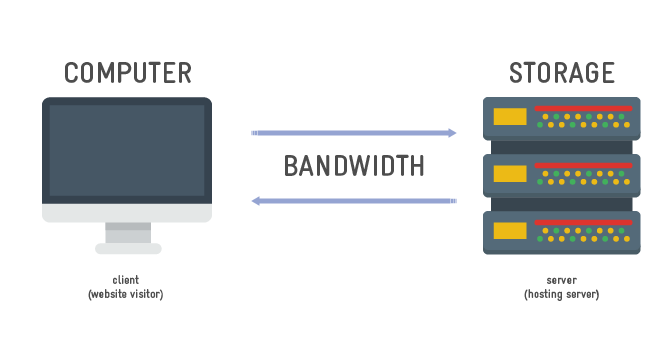What is Web Hosting? Know More About Web Hosting

Presently, there are over 1.74 billion websites on the internet, and over 4 billion internet users. In this era, the need to have an online presence is very crucial. One of the ways to easily have an online presence is via a website. But then, what is a website?

A website is a collection of similar web pages and other needed document resources residing on a remote computer.
Unless restricted for some reason, websites are accessible from anywhere in the world and at any time of the day, as long as there is an internet connection and a web browser. Thus, the usefulness and efficiency of a website can never be over-emphasized.
Either for business purposes, fun, politics, religious views, or other aspects of life where humans need to pass information across to other humans, a website will help communicate better.
Websites are not only tools of communication; they can also serve as tools for productivity, utility, system control, and so on.
Before one can have a perfectly functioning website, there are numerous resources to put together. These critical aspects are as follows…
- The code
- Hosting
- The administrative/users resources
All three of these aspects are important for a perfectly functioning website; however, a website residing on a bad hosting server can never utilize the other resources adequately.
Hosting contributes a huge amount of technical support to each and every website you see online. Web Hosting options vary from free web hosting to paid plans.
Popular websites like Facebook, Google, Twitter, etc, all resort to having their own hosting server because there isn’t any hosting company that can provide the web hosting resources that these websites need.
Websites like the ones mentioned need too much storage space, bandwidth, speed, and uptime in order to rely on an external hosting company.
There are numerous web hosting services, and it is important that you do the research to understand how to differentiate between them.
While price can be a factor that you need to consider when choosing a hosting plan, your primary goal should be to understand whether the hosting plan is suitable for the size of your business, and the amount of visitors that are coming to your site.
Below is a breakdown of the basics that you need to understand before you choose a hosting plan.
Disk space:
also known as storage space. This is a very important resource for every website, similar to computer hard disk, this is where all of the website code, security certificates, and media documents such as images are stored.
Plus, if you are a website like YouTube, you will also need to store all of the media files that are uploaded by users onto your hosting disk space.
As time goes on, inadequate storage space gets filled up and there is no more room for other files to be uploaded to the server. Another problem with inadequate disk space is that the website will run slowly.
Imagine if websites like YouTube and Facebook had limited disk space, with the amount of content being uploaded every day by millions of users, their storage space would get filled up quickly and the website would become slow.
When you are about to purchase a hosting plan, look out for the amount of hosting space that is attached to the package.
Think about the type of website you are running, and consider taking a plan with more disk space if your users will upload many files to your website or just minimal uploads by you alone.
Bandwidth:

Refers to the ability of your network to transfer data from one point to another. The higher your bandwidth capacity, the more data can be sent between computer networks at one time.
You can imagine bandwidth as a comparison between a four lane highway and a two lane highway. More cars can pass on the highway as it increases in size, but it will not increase the speed of the cars.
If your site has many visitors, you will need a higher level of bandwidth to manage their demands.
For example, YouTube hosts many popular videos. Multiple people can make a request to watch the video at the same time. YouTube needs to have enough bandwidth to provide multiple networks with data at once.
So make sure to consider the amount of bandwidth provided by the hosting company relative to the amount of visitors that you have on your site.
Uptime:
This is referring to how often a website is online and accessible. Though you may not find a hosting service with 100% uptime, make sure to settle with nothing less than 98% uptime.
Server speed:
Even when your website has all other hosting resources, it can suffer it does not have a high server speed. There are numerous online speed test out there for you to monitor site speed.
You can confirm the server speed by running a test on the host’s domain. Or you can search the internet for reviews about the particular hosting company you are about to purchase from.
Using this information, you should be able to more easily pick a hosting plan that works for you. Make sure to consider all of the above topics before you a pick a host, so that you can make sure to find one that suits your website.


